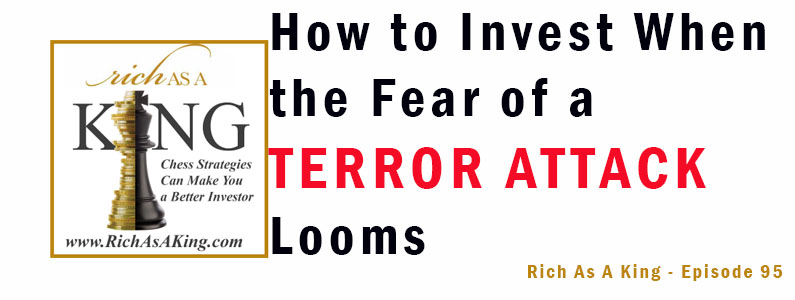
by Doug Goldstein CFP® | Apr 14, 2016 | Behavior finance, Decision Making |
If you are thinking of selling an investment, beware of the disposition effect. This occurs when investors hold onto their losing investments for too long and sell their winners too soon. The disposition effect often causes investors to sell the wrong investment. What should you sell? If you need to sell one of your investments, which one should you choose? Should you sell a stock that has made a profit, or should you sell an underperforming stock that has dropped? The disposition effect occurs when you automatically sell (dispose of) your most profitable investment and keep your losers as a matter of principle rather than as a reasoned decision. Why would you do that? Perhaps you think that you’ve gotten the most out of the stock, and you hope that the poorly performing investment may make a profit eventually. This is an erroneous assumption. Professor Terrance Odean of the University of California researched the trading patterns of tens of thousands of investors, and found that people sell winning investments because they like the feeling of selling at a profit; it provides lots of “bragging rights” as they can tell their friends that they made an amazing profit on the stock market, even though according to logic, it may have been better to dump the least profitable stock. By selling the loser, they can get a tax benefit from selling at a loss, and their winning stock may make them even more money if they hold onto it. Yet the satisfaction from profiting from a winner blinds them to the real benefits they may derive from selling your loser. Follow... Click for more
by Doug Goldstein CFP® | Apr 7, 2016 | Behavior finance, Decision Making |
Loss aversion, the fear of losing, is one of the most common causes of unsuccessful investing. Why does the dread of losing become a self-fulfilling prophecy, causing an investor to make a decision that leads to losses, not profits? Fear or greed? According to traditional wisdom, fear or greed are the motivating factors in investment decisions. For instance, greed might cause someone to sell a stock when it doubled, even though the company’s fundamentals are still strong, and holding onto it may be a wise choice. Fear of loss may lead someone to sell a stock when the market tumbles, not realizing that historically the markets have “corrected” and reached new heights (although past performance is no guarantee of future returns). Yet for many investors, loss aversion overtakes greed as a motivating influence. It’s just too difficult to look at losses in an investment portfolio. Even if the losses are just paper losses, they feel very real. Therefore, soon as the market drops, they panic and sell. When the market starts to recover, they may buy again, breaking the cardinal rule of investing: “Buy low, sell high.” Recognizing the effects of loss aversion – how people hate to lose, even on paper, is a first step toward making logical, not emotional, investment decisions. A concrete example of loss aversion: Make-believe you invested $100 in the market. Which emotion would be stronger: the joy of making 15% profit, or the anguish of losing 15% of your money? Most folks would say their distress at losing would be greater than their joy at winning… which is loss aversion! In fact, folks... Click for more

by Douglas Goldstein | Jan 26, 2016 | Behavior finance, Decision Making, Podcasts |
How does a terror attack affect investors? When Doug recently spoke to a lawyer at a big brokerage firm, he was shocked to find out that a result of the rise of global terrorism, the company had closed its international operations. But what is the general reaction to terror among long-term investors? What is the best way for investors to react to global terror? What should you do when the going gets rough? Tune in to get a link to more information about terror and its effects on economics and... Click for more

by Douglas Goldstein | Jan 12, 2016 | Behavior finance, Podcasts, Strategic Thinking |
What can a discussion with Nobel Prize laureate Professor Angus Deaton on foreign aid teach you about personal finance skills and how to help your children with money? Learn practical tips and advice on how to teach your children good personal finance practices without patronizing them. Listen for the link to an article that Doug’s son, Yosef, wrote about the financial lessons he learned from his father, the financial... Click for more

by Doug Goldstein CFP® | Dec 17, 2015 | Behavior finance |
Money is like sex. If you don’t actively teach your kids the right facts, they’ll pick up all sorts of information on the street. The best way to introduce your children to the money world is to talk to your kids about money early and often. Learning about money from a young age increases the chance your child will have a positive relationship with money. It maximizes the possibility of developing good habits, provides them with age-appropriate financial responsibilities, and provides them with tools so one day they can enjoy financial security. Provide your children with the language for money As children grow up and face financial stresses of their own (ranging from how they will pay for a date to paying for car insurance), they need to be fluent in financial vocabulary in order to properly navigate the real world. Everyone discusses money. Make sure your child knows basic fundamentals about the economy (here’s a great animated cartoon about it), and masters basic personal finance skills like balancing a checkbook, tracking spending, and checking bank/investment records online. You don’t want your child to be out of the loop if he can’t understand the language and the concepts discussed by his peers and later professional colleagues. If your child shows interest in the stock market, make sure he masters the basic vocabulary you need in trading Provide your children with a sense of security Talking to children about financial topics, especially if money is tight, creates a sense of security. Don’t be embarrassed to explain that you can’t afford to buy everything they want. In fact, avoiding frank financial... Click for more

by Douglas Goldstein | Dec 15, 2015 | Behavior finance, Decision Making, Financial Strategies, Podcasts |
Want to avoid a fight about money? Money is one of the biggest causes of friction in a relationship. Many couples fight over what belongs to each one, their debts, each other’s spending, or how much money they should give to their children. Very often, these arguments center around control. Many people believe that they are more financially savvy than their partner, who is more to blame for their money difficulties than they are. What is the best solution to avoid a fight about money? Instead of arguing and fighting about money, sit down together and work out joint goals and financial rules for you and your family. Talk about your goals rather than individual spending or saving habits. Decide how much money you are prepared to give to your children and stick with your decision. Agree to work out all major financial decisions. This episode provides easy tips and advice on how to avoid fighting about money and create firm financial strategy and goals.... Click for more









